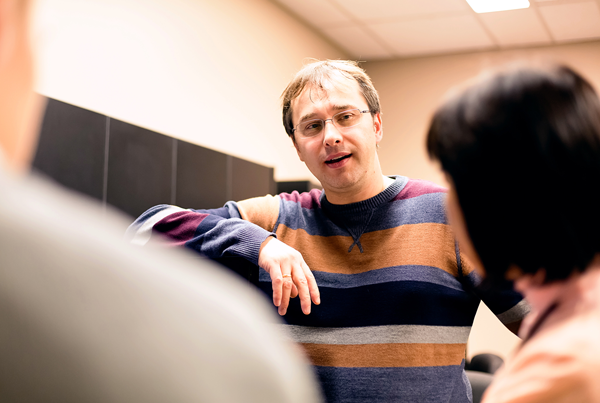Addressing the knowledge gap in using quality of life (QOL) assessment tools to enhance person-centred care for frail older adults is the focus of Dr. Rick Sawatzky’s most recent research project, funded by the Canadian Frailty Network. Despite the known benefits of QOL assessments, there is a lack of resources on how to use this information at the decision-making level.
Frail older adults and their family caregivers often experience challenges affecting their QOL due to reduced functional capabilities, burdensome symptoms, psychological and social issues, and the complexities of coordinating care. Assessment and reporting on QOL is foundational to promoting the priorities and concerns of patients and their caregivers and enhancing visibility to healthcare providers and decision makers.
There are a number of standardized and validated tools for assessing QOL, including patient-reported outcomes measures (PROMs) and patient-reported experience measures (PREMs), and there is potential for these instruments to be used to enhance person-centred care at all levels of healthcare delivery.
“We know from past research that use of QOL assessment tools can lead to improvements in care by focusing on what matters to patients and family caregivers,” said Dr. Sawatzky “But there is a lack of knowledge about how to best use and integrate QOL assessment information at point-of-care, managerial, and health policy levels of decision-making.”

To support the use of these tools in healthcare decision making with frail older adult, Drs. Sawatzky and co-PI Kara Schick-Makaroff designed an integrated knowledge translation (KT) project to develop and implement KT resources for knowledge users at all levels of healthcare. The project involves three objectives: (1) understand knowledge gaps, barriers, and facilitators regarding the use of QOL assessment tools; (2) develop KT resources tailored to support use; and (3) ongoing and end-of-project evaluation of the developed resources.
Determining Gaps and Needs
The four groups of knowledge users that this study will focus on are (1) patients and family caregivers, (2) healthcare professionals, (3) healthcare organization managers and executives, and (4) government leaders and decision-makers. Eight to twelve members of each knowledge user group will be asked to participate in focus groups and interviews on the use of QOL assessment tools, specifically focusing on gaps in knowledge and skills, and resources that would be useful. Each of knowledge user group will have an accompanying panel of researchers who will facilitate and guide discussions.
“Different knowledge users have different knowledge gaps and needs pertaining to the use of QOL assessment information,” said Dr. Sawatzky “It is important to develop resources that are tailored to addressing the needs of patients and family caregivers, healthcare providers, administrators, and policy makers so as to ensure maximum benefit at all levels of healthcare.”
Developing KT Tools
The qualitative data collected from each audience group will be analyzed to inform the development of relevant KT resources. The panels of researchers involved with each knowledge user group will work collaboratively to develop resources that address the needs of each group. The KT resources, which may include presentations, videos/animations, written materials, and interactive learning modules, will be developed through an iterative process of team meetings and feedback on each item.
Evaluating New Resources
Ongoing feedback throughout the development process is part of the third objective of the project: to evaluate the new KT resources. During tool development, participants from each knowledge user group will be invited to attend an online video conference to provide feedback on the acceptability and utility of each resource.
Following the finalization of the resources, a new sample of participants for each knowledge user group will be recruited to comment, via online survey, on the experience and perceived impact of the relevant resources.
Dr. Lara Russell, a research associate at CHÉOS, is a co-investigator on this project. She will participate in panel meetings and specifically contribute to objective 3, focusing on the evaluation of knowledge translation resources. Dr. Russell will also be presenting at an upcoming Work in Progress Seminar.
The expected outputs from this study are unique to each knowledge user group. For patients and caregivers, the study will result in resources to support the use of QOL assessment tools, care planning, and decision making. For healthcare professionals, the study will result in educational materials and guidelines to support the use of QOL tools. For healthcare organization and government leaders, the resultant KT resources will include guidelines and recommendations about QOL assessment as they relate to services, policy, and health systems.
“By integrating the priorities and needs of the varying groups of stakeholders we aim to remove the barriers that limit the usability of QOL assessment information,” added Dr. Sawatzky. “This project will help put the voices of older adults living with frailty, and of their family caregivers, at the centre of healthcare”.
The funding for this project from the Canadian Frailty Network and the Canada Research Chairs program is supported by matched funding from Fraser Health, Cambian Business Services, Patient-Centred Measurement Working Group of the B.C. Ministry of Health, the University of Alberta, and Trinity Western University.



